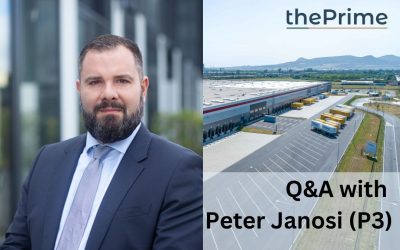Last summer, when studying for my ESG qualification, Larry Fink of Blackrock, announced that ESG is dead! Thanks Larry, I thought as I read the bold print. I knew ESG naysayers would be quoting him out of context to promote their out-of-date climate crisis denial mindset. Their dream is to keep sitting on their rich, oily backsides and continue with ‘business as usual.’
But that’s of course not what Larry intended. Fortunately for me and the planet, he was more referring to the misuse of the ESG acronym in connection with green washing. Larry is, and remains, a proponent of “conscientious capitalism.”
Last October, at the RICS Harris Debate, the central question was “Is it right to damage the economy to save the environment?” In their keynote address, Green Building Council CEO Smith Mordak challenged the UK government to overcome its fear of deficits to tackle the problem of sustainable development. Not surprisingly, their suggestion was swiftly brushed aside. With the clock ticking down on our climate doom, few agreed this as a good time to switch economic models. Transitioning away from fossil fuels will be expensive, so the global economy needs to be firing on all cylinders.
But the debate on how to get there is complicated. At the end of 2023, the United Nations Conference of the Parties 28 (COP 28) took place in the UAE with representation from 199 countries. Oil giant Adnoc’s chairperson Sultan al-Jaber was named president for the gathering, a decision activist Greta Thunberg described as “completely ridiculous.” Adnoc, after all, plans to double its oil output by 2030. On the other hand, al-Jaber is also chair of the state renewable energy company Masdar. Among the next steps mentioned in the conference’s concluding communique was to “transition away from fossil fuels in energy systems.” This was a compromise, since activists had demanded that COP 28 members would agree to “phase out fossil fuels.” But it’s a step in the right direction.
So is the EU Corporate Sustainability Reporting Directive (CSRD), which came into play this year as of January 1. It requires companies to report on their ESG activities and track their carbon footprint. It is a phased approach, worth checking when you will be eligible to report so you can plan accordingly and be mindful the large companies are already required to report on their value chain. The European Sustainability Reporting Standards (ESRS) is the associated document that provides companies with a reporting framework to guide their reporting activities. The two documents are crammed with the sort of legalistic detail that could cure insomnia in less than three pages. Having gotten through the first fifty pages of each (and read the Big 4’s assessment for the rest), it is clear to me that compliance will take a Herculean effort. But changing directions to reach net-zero carbon emissions was never going to be easy.
With ongoing encouragement from Larry Fink, slow progress by the COP 28 and new EU directives, it seems the sustainable stars are starting to align. It is clear that the global economy needs to be working close to full power in order to drive the transition. Unfortunately, net zero remains a distant goal and there’s no silver bullet.
To get there navigating through a minefield of ESG risks and opportunities will force international bodies, countries, and companies of all sizes to develop complex strategies. The question now is: have you developed yours?
John Newton is a Prague-based ESG consultant supporting business, including construction and real estate companies
______________
Corporate subscribers are welcome to publish their news, views and thought leadership pieces in the Industry News section of ThePrime






